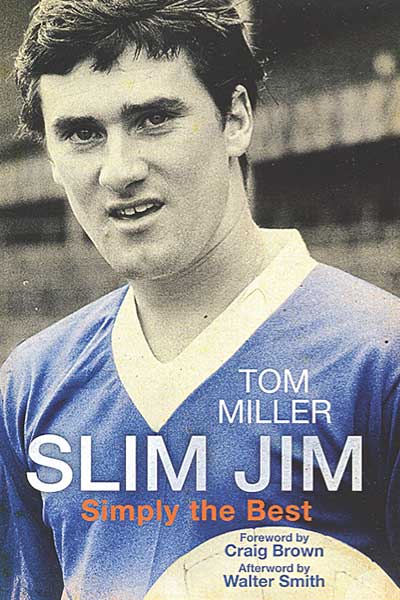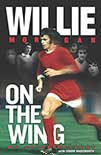Search: 'Eusebio'
Stories
Seleção coach Fernando Santos remains defiant ahead of Hungary clash
22 June ~ Before June 8, the Portuguese had generally been a little sceptical about their team’s chances in France. Then they played Estonia at the Luz in the last warm-up match and knocked seven past them in a dazzling display of attacking football, with a seemingly rejuvenated Ricardo Quaresma scoring twice and assisting for another two. His resurgence offered coach Fernando Santos a viable 4-3-3 alternative (with Quaresma joining Cristiano Ronaldo and Nani up front) to the preferred 4-4-2, and suddenly the European title he’d been promising seemed very doable.
Vulgar commercialism aside, the European Cup’s lustre is built on a monopoly
1 June ~ Liverpool v Milan in 2005 then 2007; Manchester United v Barcelona in 2009 and 2011; then, on Saturday, Real Madrid defeated Atlético Madrid in the Champions League final for the second time in three years. UEFA competition has become a boring fait accompli, yet I still love the European Cup final. A marathon of cynical commercial tat, including some of the preening participants, it remains the most genuinely heavyweight fixture in club football – and an unmissable date with the television.
 Simply the best
Simply the best
by Tom Miller
Black & White, £9.99
Reviewed by Gordon Cairns
From WSC 337 March 2015
The radio football parody Only An Excuse captured the Scottish perception of Jim Baxter almost to perfection back in the 1980s. His character explains his most famous performance, against England in 1967 where at one point he juggled with the ball: “I had a couple of great teachers… and three White & Mackays and a double Grouse, before I went on the pitch, like. That would explain the languid fluidity.” Unfortunately, the only inaccuracy was the choice of spirit – Baxter preferred Bacardi over whisky. Tom Miller tries to expand on the popular caricature of an incredible footballer who loved a drink by offering an explanation for Baxter’s self-destruction in this new biography, with somewhat limited results.
James Curran Baxter is often described as Scotland’s greatest player but ended a 12-year playing career with only ten domestic medals, which was not a lot given that Rangers were the dominant team in Scotland for most of his time at Ibrox. Perhaps that is why his eulogists focus on individual performances, including two victories at Wembley and being picked for a Rest of the World select. However the extent of Baxter’s drinking and lack of training must surely limit claims that he was truly world class. Although alcohol abuse was rife in the football culture of the 1960s, it’s questionable whether you can consistently operate at the top level with high volumes of alcohol in your bloodstream – Pelé and Eusébio weren’t playing with hangovers.
It seems Baxter’s problem was that he simply didn’t value the natural ability that raised him out of the ordinary, his career a long attempt at sabotaging the skill he possessed. In the most interesting chapter, sports psychologist Tom Lucas examines how never being acknowledged by his birth parents as their son during his playing career may have affected Baxter. (He grew up thinking his real mother was his aunt, who he was raised by.) Lucas’s conjecture is that the pitch was the only place Baxter could escape from the pain of rejection by his mother while his womanising could be connected to his feelings of abandonment.
Published two years after what was billed as “the definitive biography”, the bulk of this book rehashes the well-worn tales of Baxter’s drinking, gambling and occasional footballing. Miller, an in-house commentator for Rangers, didn’t have to wander far in his choice of interviewees, the majority of whom seem to come from the club’s “family”, including current defender Darren McGregor and youth-team coach Davie Kirkwood, I assume because both had played for Fife clubs like Baxter, hardly justifying their inclusion. Baxter’s own voice is barely heard, yet for most of his playing career he wrote syndicated columns. Although ghost-written, surely a trawl through these would have unearthed something more relevant than how McGregor felt when he joined Rangers.
The inclusion of two poems and a selection of pen portraits from the back of football cards feel like fillers to make the book up to the required length. There is no interview with Alex Ferguson, who played alongside Baxter; Scotland’s greatest manager’s views on getting the best from Scotland’s most talented player would have been compelling. Neither is there any input from Baxter’s sons or first wife, which could have given greater insight into how he felt about family, especially if he had issues about abandonment.
 by Willie Morgan with Simon Wadsworth
by Willie Morgan with Simon Wadsworth
Trinity Mirror, £16.99
Reviewed by Graham McColl
From WSC 326 April 2014
If the purpose of this book were to rid Willie Morgan of the image of being George Best’s doppelganger, it sets about it in a strange fashion. Behind the main picture on the cover, faint background images show Morgan at various stages of his life from babe to footballer but, inexplicably, the only other person amid these images is Best, Morgan’s late 1960s and early 1970s fellow winger at Manchester United. On the inside back flap, there is a picture of Morgan in a United strip… along with Best. Inside the book there is only one advertisement for another publication – a page-sized promotion for The Best of Best, a “souvenir magazine” from the Daily Mirror that boasts “lost images” of “The Genius As You’ve Never Seen Him Before”.
George is given further prominence once the story begins, receiving a mention on more than 40 pages. Yet in Bestie, George’s own 1998 authorised biography, Morgan features only twice, both times derogatorily. “Morgan always seemed a bit jealous,” Georgie says. Morgan, in contrast, on first mention of Best, says, touchingly, that their lives would be “intertwined”.
Pushing this book on the back of Best, as someone has decided to do, is unnecessary. Morgan is an engaging storyteller, a happy-go-lucky individual with an underlying toughness forged, as he relates in excellent detail, through his upbringing in Sauchie, the Clackmannanshire mining village. He is also capable of some fabulous self-promotion: “Along with Geroge Best [who else?], I was one of the two biggest stars in football,” he says of mid-1968 – the era of Eusébio, Bobby Charlton, Bobby Moore, Jimmy Johnstone, Pelé, Denis Law et al.
One early inconsistency almost brings the tale to a shuddering halt, though. Willie states that his dad, after a theological dispute with a Canon Matthews in Sauchie when Willie was around 12, had “wanted to kill” Matthews, and never went to church again. Yet, when Willie turns 15, his dad keeps him on at school, on the advice of a priest, rather than sending him down the pit, because: “My dad was never one to go against the wishes of the church.” This seeming inconsistency is more than a pedantic niggle. If Willie goes down the mine, he doesn’t play schools football, doesn’t get spotted by Burnley FC, doesn’t become a pro footballer, doesn’t write this book.
Get over that hurdle and the book lives up to the breathless cover blurb of “hundreds of tales” about “the hell-raising Best [him again] and a host of others”, although the story of Scotland’s 1974 World Cup is shockingly light on insider detail. Things peter out with post-playing tales of socialising with people such as Rod Stewart which does at least bring some amusement, with a schoolboyishly eager Stewart asking Willie, as they attend a match, to relate each stage of his own pre-match professional routine. “I would probably be picking some horses out right now for the next race,” Morgan replies. His yarn is like that all the way through and plentifully enjoyable for it.